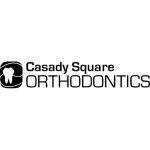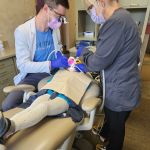When Should an Infant Go to the Dentist?
As a new parent, I found myself asking many questions about how to care for my infant's health. One of the first concerns that popped into my mind was about dental care. After all, baby teeth are temporary, right? So, when is the right time to take my little one to the dentist for the first time? I decided to dig deeper into this important topic, and what I discovered surprised me.
Most parents don't realize that it's important to start thinking about your child's dental health even before they have their first tooth. According to experts, your baby’s first dental visit should ideally happen by their first birthday or within six months after their first tooth emerges—whichever comes first.
1. Why Early Dental Visits Matter
When I first heard about the recommendation to visit the dentist so early, I was skeptical. But after speaking with my pediatric dentist, I realized that these early visits are crucial for establishing healthy habits and preventing future problems. The first visit is less about cleaning and more about assessing the baby’s oral health and providing parents with helpful guidance on how to care for their child's teeth and gums.
By taking your infant to the dentist early, you can help avoid common dental problems such as tooth decay or misalignment of teeth later in life. The dentist can also check for early signs of any potential oral health issues, such as thumb-sucking or teething problems. Plus, it helps your baby get used to dental visits and builds a positive experience with oral health care from a young age.
2. What to Expect During Your Infant's First Dental Visit
The first dental appointment for my baby was surprisingly simple and informative. When I arrived at the pediatric dentist’s office, I was a bit anxious, but the staff made the experience easy and stress-free. For infants, the first visit is typically quick. The dentist will examine your baby’s mouth to check for any abnormalities, and may also look at the gums and teeth (if any have come in). They'll give you advice on how to properly clean your infant’s gums before teeth erupt and how to care for their first teeth once they appear.
In addition, the dentist will discuss feeding habits, as certain foods and drinks can affect oral health. For instance, they’ll talk to you about the dangers of letting your baby fall asleep with a bottle, as this can lead to "bottle mouth" or early tooth decay. The visit is also a great opportunity for parents to ask any questions about teething, oral hygiene, and what to expect in the coming months as more teeth come in.
3. The Importance of Baby Teeth
One thing I learned early on was that baby teeth are just as important as adult teeth. While they will eventually fall out, they play a crucial role in a child’s development. Baby teeth help with chewing, speaking, and setting the stage for adult teeth to come in correctly. They also save space in the mouth for the permanent teeth, and if baby teeth decay or fall out too early, it can affect the alignment of permanent teeth later.
Dental care for baby teeth is just as important as caring for adult teeth. Ensuring that they are healthy from the beginning helps set up good oral habits for the future. By practicing proper cleaning techniques early on, you're helping your baby avoid cavities and other dental issues.
4. How to Care for Your Infant’s Teeth and Gums
Proper care of your baby’s mouth begins even before their first tooth arrives. I found that gently wiping your baby’s gums with a soft, damp cloth after feedings helps keep their gums clean. Once their first tooth erupts, which typically happens around six months, you can start brushing with a soft-bristled toothbrush and a small smear of fluoride toothpaste. It’s important to brush twice a day, just like you would for older children or adults.
As your baby grows and more teeth emerge, you can gradually introduce other oral care products, such as a small toothbrush. My pediatric dentist also recommended that I avoid sugary snacks and drinks, especially before bedtime, as these can increase the risk of cavities. Healthy eating habits go hand in hand with oral health, and it’s essential to make sure that your baby is getting nutritious foods that promote healthy teeth.
5. Signs That Indicate Your Infant Needs a Dental Checkup
While the general guideline is to visit the dentist by the first year, there are certain signs that might require an earlier visit. If your baby is showing any of the following symptoms, it’s a good idea to schedule an appointment with the dentist:
- Teething pain: Teething can cause discomfort and irritability. If your baby seems to be in pain or has red, swollen gums, it’s important to ask the dentist for advice on how to soothe them.
- Early tooth eruption: If your baby’s teeth are coming in early or not coming in at all, a dentist can assess whether this is normal or if there’s cause for concern.
- Thumb-sucking or pacifier habits: Prolonged thumb-sucking or pacifier use can affect dental development. If these habits persist, it’s worth consulting a dentist for advice on how to help your baby stop.
6. Finding the Right Pediatric Dentist
Choosing the right pediatric dentist is an essential part of making sure your baby’s dental health is in good hands. After much research and asking for recommendations, I found a dentist who specializes in treating young children and infants. Pediatric dentists are specially trained to work with children and provide a comfortable, positive experience at the dentist’s office.
When looking for a pediatric dentist, consider their office environment. A child-friendly office with a welcoming atmosphere can make all the difference in how your baby feels about going to the dentist. Additionally, consider the dentist’s approach to communication—having someone who can clearly explain the importance of dental care for your baby is key in making informed decisions about their health.
7. Preparing for Your Baby’s First Dental Visit
As a first-time parent, I found that preparing for my baby’s first dental appointment was just as important as the visit itself. It’s a good idea to start talking to your baby about the dentist in a positive, non-threatening way. You can show them pictures of a dentist’s office or even read books that explain dental visits for children. Even though my baby was too young to understand the concept, having a calm and relaxed attitude helped make the experience more pleasant for both of us.







 Inverness Dental Care | Dr. Payal Trivedi5.0 (252 review)
Inverness Dental Care | Dr. Payal Trivedi5.0 (252 review) Axiom Dentistry4.0 (314 review)
Axiom Dentistry4.0 (314 review) Casady Square Orthodontics5.0 (851 review)
Casady Square Orthodontics5.0 (851 review) Mountainside Dental Group - Rancho Santa Margarita4.0 (117 review)
Mountainside Dental Group - Rancho Santa Margarita4.0 (117 review) Spring Lake Dental Arts4.0 (64 review)
Spring Lake Dental Arts4.0 (64 review) Southill Dental Group5.0 (364 review)
Southill Dental Group5.0 (364 review) The Importance of Oral Health Education During Pregnancy for a Healthy Pregnancy
The Importance of Oral Health Education During Pregnancy for a Healthy Pregnancy Best Tips for Brushing Your Teeth Properly for Healthy Gums: Essential Techniques for Oral Health
Best Tips for Brushing Your Teeth Properly for Healthy Gums: Essential Techniques for Oral Health Why Skipping Dental Checkups Can Lead to Bigger Oral Health Problems
Why Skipping Dental Checkups Can Lead to Bigger Oral Health Problems Advantages of Porcelain Dental Restorations
Advantages of Porcelain Dental Restorations How Can Diabetes Cause Tooth and Gum Problems? Preventing and Managing Oral Health Issues
How Can Diabetes Cause Tooth and Gum Problems? Preventing and Managing Oral Health Issues Healthy Habits for Promoting Good Oral Health and Hygiene: Tips for a Healthy Smile
Healthy Habits for Promoting Good Oral Health and Hygiene: Tips for a Healthy Smile